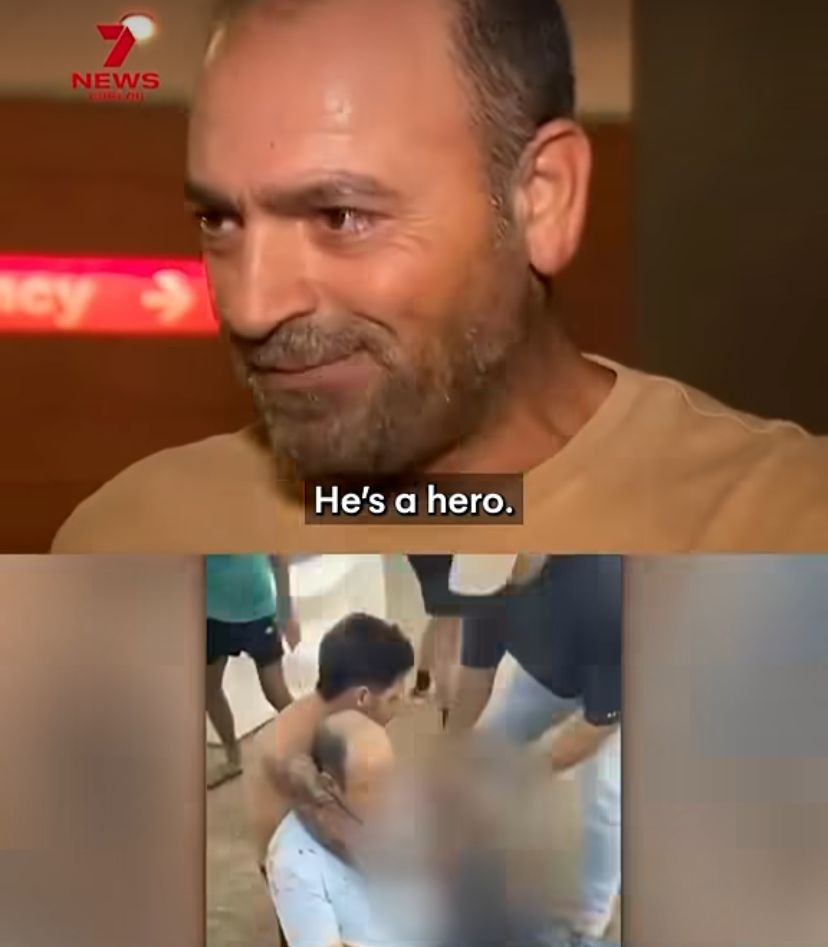Trending
How Hamas’ attack on Israel sparked events that could overwhelm the Middle East
After the brutal incursion by Hamas militants into Israel on 7 October last year, the government of Israeli Prime Minister Benjamin Netanyahu has drastically scaled up its military response.
The scale of Hamas’ surprise attack, the number of people killed and abducted was unprecedented and in just a few hours laid bare to Israelis how vulnerable their country could be.
The Israeli military response was immediate and the government outlined a range of main objectives; the most immediate of these was to eliminate Hamas in Gaza entirely, the militant group Israel views as a threat to its very existence.
Another was to free the Israeli hostages from Gaza. During the Israel incursion, Hamas captured around 250 people and took them back to Gaza.
But one year on, has Israel achieved any of its operational, strategic and political goals?
Corridors of power
A year on, the Israeli military (Israeli Defence Forces) is still fighting in Gaza, suffering losses almost every day, while thousands of Palestinian civilians, including women children, have been killed.
On 30 May this year, the IDF took control of the Philadelphi Corridor, a 14-kilometre strip of land stretching from the Mediterranean Sea to Israel and running along Egypt’s border.
According to Israel, controlling this line of territory is crucial to suffocate Hamas by cutting off its supply lines of weaponry that come into Gaza via the Rafah border crossing with Egypt.
But Israel seizing control of the corridor sparked concern in the US and some European countries. They were concerned by the IDF presence in the area, a violation of the US-brokered 1978 Camp David Accords which established peace between Israel and Egypt.
Egypt, Qatar and some other Arab states that recognized Israel diplomatically have asked it to withdraw its troops.

An Israeli armoured vehicle enters the Philadelphi Corridor near the Palestinian town of Rafah in southern Gaza, October 19, 2006 TSAFRIR ABAYOV/AP
Egypt’s Foreign Minister, Badr Ahmed Mohamed Abdelatty, accused Israel of “using starvation as a weapon to force people to abandon Gaza. Israel has taken the Rafah crossing to prevent international organisations from delivering humanitarian aid leaving Gazans without sufficient food and medicines”.
But Israel maintaining a constant military presence along the Philadelphi Corridor and the Netzarim Corridor, the zone of occupation the IDF set up that splits Gaza in half, is one of its conditions for a lasting ceasefire in Gaza.
Fighting Hezbollah
The Lebanese militant group Hezbollah, who ideologically is aligned with Hamas, also demanded Israel withdraw from the area near the Rafah border crossing. In return it would stop almost daily exchange of fire with Israeli forces in the north. That proposal was rejected.
The Philadelphi Corridor question is the strategic bridge that connects the war in Gaza with the escalating conflict in Lebanon.
12 months after the war in Gaza erupted, a new front has opened; along Israel’s northern border with Lebanon where it is now engaged in a conflict with Hezbollah. Israel and Hezbollah have traded almost daily cross-border fire since October last year, but in recent weeks those hostilities have worsened.
Cross-border fire has become more intense and on 30 September, Israel launched what it called a targeted ground offensive into Lebanese territory to root out and eliminate Hezbollah fighters and positions.

Flames and smoke rise from an Israeli airstrike in southern Beirut, October 7, 2024 Bilal Hussein/Copyright 2024 The AP. All rights reserved
Targets not met
More than 600 members of Israel’s security forces have lost their lives in punishing urban warfare in Gaza. And according to the Hamas-run health ministry, more than 41,000 Palestinians have been killed.
But the ministry does not distinguish between civilians and combatants in its count.
A year of war has left Gaza decimated. Swathes of the territory are nothing more than piles of rubble and the people still living there are threatened by starvation and illnesses.
And still the goal of eradicating Hamas is still far from being reached. According to Israeli figures, 117 hostages have been released but most of those were exchanged for Palestinian prisoners in a temporary November truce, rather than freed as a result of IDF military operations.

A woman wears a blindfold during a protest in Tel Aviv calling for a ceasefire deal and the immediate release of hostages held in Gaza by Hamas, September 4, 2024 Ariel Schalit/Copyright 2024 The AP. All rights reserved.
What happened on 7 October 2023?
On 7 October 2023 at 6.30am Israel time Hamas launched what it called operation ‘Al Aqsa Flood’ against Israel.
Almost 6,000 rockets were launched from Gaza on Israeli targets, on populated areas around the Gaza Strip and towards major cities like Tel Aviv and Ashkelon.
The unexpected attack carried out by a Hamas-coordinated conglomerate of various Palestinian armed groups, killed more than 1,200 Israelis, the majority of whom were civilians.
6,000 armed Palestinians breached Gaza’s borders and stormed villages and settlements in Israel after overwhelming the few Israeli military units present in the area.
The gunmen attacked by land, with pick-ups and motorbikes, from the sea, with speed boats, and from the sky using paragliders.
Among the first victims were attendees of an open-air music festival near the kibbutz of Re’im.

This photo released by the Israeli military shows ground operations inside Gaza, November 2, 2023 AP/AP
During the incursion, Hamas and its allies committed dozens of crimes, including sexual assault, against Israeli civilians, including children.
It was the first invasion of Israeli territory since 1948, the year the country was founded and the lightning attacks surprised both Israel and the world.
The sophisticated mix of guerrilla tactics, commando military operations and hybrid warfare caught Israeli security off guard.
Such an operation needs training and preparation with visible drills and some military analysts around the world were baffled that Israeli intelligence wasn’t aware that Hamas training for a military operation.
Moreover the reaction from the IDF was far from rapid or coordinated, adding chaos to the panic.
Benjamin Netanyahu’s government became the object of harsh criticism by the Israeli public for what they said was the inefficient management of national security.
Military response
The brutality of the killings and the number of hostages taken could only have a military answer.
Netanyahu’s government had to respond with force and hit hard and deep into Gaza, especially since the incursion had an international dimension as Hamas receives support and funding from Israel’s arch-enemy, Iran.
The Israeli cabinet ordered a military response on the same day, launching Operation Swords of Iron. It started with air operations, paving the way for a ground assault on 27 October.
Israeli military authorities instructed more than one million Palestinians to leave Gaza. But with nowhere to go after the closure of the border with Egypt, they had no choice but to stay.
On 20 May this year, the International Criminal Court prosecutor launched proceedings for issuing arrest warrants for Prime Minister Benjamin Netanyahu and his defence minister, Yoav Gallant.

Iranians attend an anti-Israeli gathering after Friday prayers in Tehran, April 19, 2024 Vahid Salemi/Copyright 2024 The AP. All rights reserved
The court also announced the prosecution of senior Hamas figures Yahya Sinwar, Mahamed Deif and Ismail Haniyeh.
On 31 July, Haniyeh was killed in an Israeli strike in the Iranian capital Tehran.
On the diplomatic front, voices for the creation of a Palestinian states have been growing louder. Even though the two-state solution has been pushed aside by the reality on the ground and Benjamin Netanyahu has completely ruled it out, in May Ireland, Spain and Norway formally recognised Palestine as an independent state.
They were followed later the same month by Slovenia. The move was backed by EU Council president, Charles Michel.
Will the West Bank become the new Gaza?
In late September the IDF intensified operations in the West Bank, as part of its anti-Hamas mission.
Hamas, Islamic Jihad and other secular Palestinian militant movements have extended their guerrilla network in a bid to destabilise the West Bank, ostensibly controlled by the Palestinian Authority but in reality much of it is occupied and administered by Israel.

Pro-Israel protesters chant as they march towards Parliament Hill from City Hall during a ceremony in Ottawa, October 6, 2024 Spencer Colby/The Canadian Press
The West Bank is also under pressure from Israeli settlers who have been trying to establish new colonies there with the support of the far-right political parties that are members of the Netanyahu-led coalition government.
These settlements are illegal under international law and have been widely condemned by the international community.
The West Bank is also a powder keg in the making that could erupt at any time.
Trending
The man who tackled a gunman to the floor and saved people from getting sh0t at Bondi Beach in Australia has been identified as Ahmed al Ahmed.

The man who tackled a gunman to the floor and saved people from getting sh0t at Bondi Beach in Australia has been identified as Ahmed al Ahmed.
He was shot during the incident and is currently recuperating in a hospital.
Meanwhile the two gunmen who k!lled over 9 people during the attack were neutralised.
NB: This page does not support violence and this is just a news report.
https://www.instagram.com/reel/DSQXFGajEFV/?igsh=M295eGdiNGVtbHBn
🎥 @7newsaustralia
Trending
Female Student Missing For 8 Days Found Chilling At Boyfriend’s House

A fresh controversy erupted online after a female student, missing for eight days, was found at her boyfriend’s house.
Details of the incident were shared by a classmate of the lady, identified as @folaaaa on X (formerly Twitter).
According to @folaaaa, her classmate’s parents are of age, and the father disclosed that he is currently 70 years old.
Prior to her being found, her last WhatsApp activity was on Monday, December 8, 2025.
Read Tweet Below…..
My coursemate was reported missing by her parents yesterday. They said they could not reach her for like 8 days. We did our research she was last seen online on Monday. They sha did perfect investigation with the oga olopa and they found out she was with her man”.
Meanwhile, the tweet which has garned over 400,000 views has been flooded with reactions from X users.
Dam Dam stated, “Dem suppose arrest Her and her man. Make dem sleep inside cell for a week. Imagine giving your parents so much headache and eventually you are with a man,at least call them and let them know you are safe wherever you are”.
PP the art, “The number of people that had shared and reshared “missing girl” on my WhatsApp cl was crazy. my friend was telling me this just now and i was so shocked”.
Jimmy, “Same thing happened in my department while i was in year 1,fliers were made they even interrogated her male friends.these went on for the whole of the semester only to find out she reads the class group messages and sees the missing fliers. She then later said she’s with her man”.
Bhetty, “She went to see a man and she didn’t take her parents’ call?Make she sleep cell for 3 days”.
See below…..

Trending
“It took me getting married and giving birth to realise marriage benefits men more” — Woman shares emotional thoughts

A woman has stirred serious conversations online after opening up about how marriage and motherhood changed her perspective on life.
In a heartfelt reflection, she said it was only after getting married and giving birth that she began questioning who marriage truly benefits.
According to her, women often carry the heavier load — emotionally, physically, and mentally.
She explained that marriage can make women feel like tools, responsible for cooking, cleaning, caring for the home, and even contributing financially, while still bearing the full weight of pregnancy, childbirth, and childcare.
She questioned why something described as a “blessing” should come with so much pain, stress, sleepless nights, and emotional strain for women.
In her words, childbirth comes with intense pain, followed by years of responsibility that largely fall on the woman, while many men continue life almost unchanged.
She admitted she never strongly pushed for marriage herself and only went along with it after family pressure. It was the lived experience — not theory — that opened her eyes.
While she made it clear that she loves her son deeply and finds joy in him, she said motherhood also forced her to confront uncomfortable truths about expectations placed on women.
📹: TT/mummychika1
https://www.instagram.com/reel/DSP0XSnjAvd/?igsh=MTd3ZzdlbWI0dHV1Nw==
-
Business1 year ago
US court acquits Air Peace boss, slams Mayfield $4000 fine
-

 Trending1 year ago
Trending1 year agoNYA demands release of ‘abducted’ Imo chairman, preaches good governance
-

 Politics1 year ago
Politics1 year agoMexico’s new president causes concern just weeks before the US elections
-

 Politics1 year ago
Politics1 year agoPutin invites 20 world leaders
-

 Politics1 year ago
Politics1 year agoRussia bans imports of agro-products from Kazakhstan after refusal to join BRICS
-
Entertainment1 year ago
Bobrisky falls ill in police custody, rushed to hospital
-
Entertainment1 year ago
Bobrisky transferred from Immigration to FCID, spends night behind bars
-
Education1 year ago
GOVERNOR FUBARA APPOINTS COUNCIL MEMBERS FOR KEN SARO-WIWA POLYTECHNIC BORI













